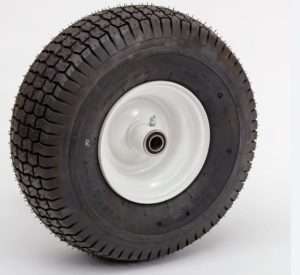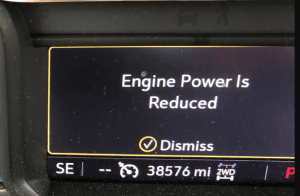Dodge challenger off-road tires “Take Your Challenger Places You Never Imagined”
The Dodge Challenger is a muscle car that was first introduced in 1970. It was originally designed to compete with the Ford Mustang and Chevrolet Camaro, and it quickly became known for its powerful engines and bold styling.
Throughout the years, the Challenger has undergone several redesigns and updates, but it has always remained true to its roots as a high-performance, rear-wheel-drive muscle car.
When it comes to off-roading, having the right tires is crucial. Off-road tires are designed to provide better traction and stability on various types of terrain, such as mud, rocks, and gravel.
These tires also have a more aggressive tread pattern that can help to clear away debris and provide a better grip. The right tires can make a huge difference in the performance and safety of your vehicle when off-roading.
On the other hand, if the tires are not suitable for off-roading, it can lead to poor handling, lack of traction, and even damage to the vehicle.
Therefore, it is very important to choose the right tires for your specific off-roading needs to ensure a safe and enjoyable experience.
Types of Off-Road Tires for the Dodge Challenger
All-Terrain Tires:
These tires are designed to provide a balance of performance on both paved roads and off-road terrain. They have a more aggressive tread pattern than standard tires and are often made of durable materials that can withstand the rigors of off-roading.
These tires are a great option for Dodge Challenger owners who want a tire that can handle a variety of driving conditions, including dirt roads and light off-roading.
Mud-Terrain Tires:
These tires are specifically designed for off-roading in muddy conditions. They have a deep, aggressive tread pattern that can help to clear away mud and provide better traction. They also have large, open shoulder blocks that can help to prevent the tire from getting stuck in deep mud.
These tires are a great option for Dodge Challenger owners who frequently drive in areas with a lot of mud or other soft, slippery terrain.
Rock-Terrain Tires:
These tires are designed for off-roading on rocky terrain. They have a more durable construction than all-terrain or mud-terrain tires, with reinforced sidewalls and a more aggressive tread pattern.
They are also more resistant to punctures and cuts. These tires are a great option for Dodge Challenger owners who frequently drive on rocky terrains, such as mountains or desert roads.
All of the above-mentioned tire types have their own pros and cons. All-terrain tires are great for versatile use, mud-terrain tires are best for muddy areas and Rock-terrain tires are best for rocky areas.
However, all-terrain tires might not be as good as mud-terrain or rock-terrain tires in their respective areas. Similarly, mud-terrain tires may not be as good as all-terrain or rock-terrain tires on paved roads.
Therefore, it is important to consider the type of terrain you will be driving on most frequently when choosing the right tire for your Dodge Challenger.
Top Picks for Off-Road Tires for the Dodge Challenger
BF Goodrich All-Terrain T/A KO2:
This all-terrain tire is a popular choice for Dodge Challenger owners. It has a durable construction and an aggressive tread pattern that provides excellent traction on dirt roads and light off-roading. The tire also features a new compound that is resistant to cuts and punctures.
Nitto Terra Grappler G2:
This all-terrain tire is designed for SUVs and light trucks, and it is a great choice for the Dodge Challenger. It has a durable construction and an aggressive tread pattern that provides excellent traction on both paved roads and off-road terrain. The tire also has a comfortable ride quality and a long tread life.
Goodyear Wrangler Duratrac:
This mud-terrain tire is designed for trucks and SUVs, and it is a great choice for the Dodge Challenger. It has a durable construction and an aggressive tread pattern that provides excellent traction in mud and other soft, slippery terrain. The tire also has a comfortable ride quality and a long tread life.
Michelin LTX A/T2:
This all-terrain tire is a great choice for Dodge Challenger owners who want a tire that can handle a variety of driving conditions. It has a durable construction and an aggressive tread pattern that provides excellent traction on dirt roads and light off-roading. The tire also has a comfortable ride quality and a long tread life.
BF Goodrich KM2:
This mud-terrain tire is a great choice for Dodge Challenger owners who frequently drive in areas with a lot of mud or other soft, slippery terrain.
It has a durable construction and an aggressive tread pattern that provides excellent traction in mud and other soft, slippery terrain. The tire also has a comfortable ride quality and a long tread life.
It’s worth noting that the above-mentioned tires are some of the top options available in the market and it’s always best to consult with a professional mechanic or tire specialist for the best options for your specific vehicle and usage.
How to Care for and Maintain Off-Road Tires
Tips for prolonging the life of your tires
- Avoid overloading your vehicle, as this can put extra strain on the tires and cause them to wear out more quickly.
- Drive at a moderate speed, as excessive speed can cause the tires to generate more heat and wear out more quickly.
- Avoid driving on rough or uneven surfaces, as this can cause the tires to wear out more quickly.
- Regularly check and maintain the tire pressure to ensure the tires are properly inflated
- Regularly check for any signs of damage, such as cuts, punctures, or bulges, and have them repaired as soon as possible
How to properly inflate and rotate tires:
- Check the tire pressure regularly and inflate them to the recommended pressure as per the vehicle owner’s manual.
- Rotating the tires every 5,000 to 7,000 miles can help to ensure even wear and prolong the life of the tires.
- When rotating the tires, it’s important to switch the tires from front to back and not side to side.
Importance of regular tire tread depth checks:
- Regularly checking the tire tread depth is important to ensure the tires have enough tread to provide adequate traction and avoid hydroplaning.
- The minimum legal tread depth is 2/32 of an inch, but it’s recommended to replace the tires before they reach this level.
- To check the tread depth, use a tread depth gauge or the “penny test” which involves inserting a penny into the tread with Lincoln’s head facing down. If the top of Lincoln’s head is visible, it’s time to replace the tires.
- By following these tips, you can prolong the life of your off-road tires, ensure your safety on the road and make your Dodge Challenger ready for off-roading adventures.
Conclusion
The Dodge Challenger is a powerful and versatile vehicle that can handle a variety of driving conditions, including off-roading.
Having the right tires is essential for off-roading, and there are several types of off-road tires available, including all-terrain, mud-terrain, and rock-terrain Tires.
Each type of tire has its own set of pros and cons, and it’s important to consider your specific driving needs and preferences when selecting a tire.
Some top picks for off-road tires for the Dodge Challenger include the BF Goodrich All-Terrain T/A KO2, Nitto Terra Grappler G2, Goodyear Wrangler Duratrac, Michelin LTX A/T2, and BF Goodrich KM2.
Proper care and maintenance of your tires are essential to prolong their life and ensure your safety on the road. This includes checking tire pressure, rotating tires, and regularly checking the tread depth.
Final thoughts and recommendations for Dodge Challenger owners looking to take their vehicle off-roading:
If you’re planning to take your Dodge Challenger off-roading, it’s essential to invest in a set of high-quality off-road tires.
Consider your specific driving needs and preferences when selecting a tire. If you’ll be driving mostly on dirt roads and light off-roading, an all-terrain tire may be a good choice. If you’ll be driving mostly in mud or other soft, slippery terrain, a mud-terrain tire may be a better choice.
Always consult with a professional mechanic or tire specialist for the best options for your specific vehicle and usage.
Proper care and maintenance of your tires are essential to prolong their life and ensure your safety on the road. This includes checking tire pressure, rotating tires, and regularly checking the tread depth. By following these tips, you can make sure your Dodge Challenger is ready for all your off-roading adventures.
faqs about dodge challenger off-road tires
Q: What type of off-road tires are best for a Dodge Challenger?
A: The best type of off-road tires for a Dodge Challenger are all-terrain tires. These tires offer a good balance of on-road and off-road performance, making them ideal for a vehicle that may be driven on both pavement and dirt roads.
Q: Can I use mud tires on my Dodge Challenger for off-roading?
A: While mud tires may offer better off-road performance than all-terrain tires, they are not recommended for use on a Dodge Challenger. Mud tires typically have a very aggressive tread pattern that can be noisy on pavement and may wear out quickly when driven on paved roads.
Q: Will off-road tires affect my Dodge Challenger’s fuel efficiency?
A: Yes, off-road tires can affect fuel efficiency. The more aggressive the tread pattern, the more resistance the tires will have against the road, which can lead to increased fuel consumption. However, the difference in fuel efficiency will likely be minimal and should be outweighed by the improved off-road performance of the tires.
Q: Are there any specific brands of off-road tires that are recommended for a Dodge Challenger?
A: Some popular brands of off-road tires for a Dodge Challenger include BF Goodrich, Goodyear, and Michelin. These brands offer a wide range of all-terrain tires that are designed to provide good off-road performance while still maintaining good on-road behavior.
Q: Can I use off-road tires on my Dodge Challenger all year round?
A: While off-road tires can be used all year round, it is not recommended. All-terrain tires are designed to provide good performance on a variety of surfaces, but they may not perform as well in extreme weather conditions such as deep snow or icy roads. It is best to use all-season tires during the winter months for optimal safety and performance.



